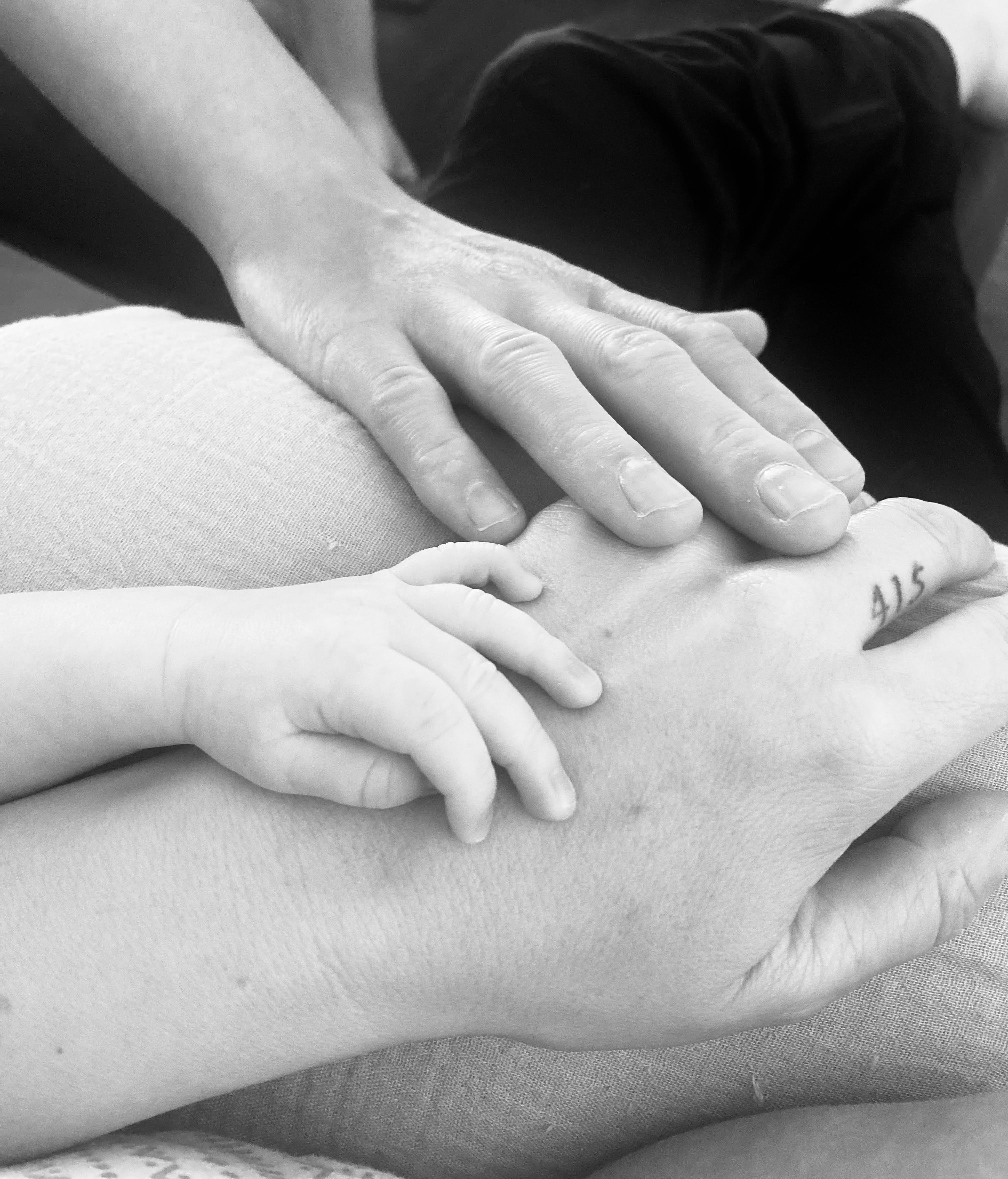
Endometriosis and its impact on fertility
Are you facing an endometriosis diagnosis and concerned about your ability to have a baby? Here at our Walnut Creek fertility clinic, Collab Fertility, we are skilled at diagnosing and treating women with endometriosis and other chronic conditions that impact fertility.
With over a decade of experience as a fertility specialist, I am double board-certified in Reproductive Endocrinology and Infertility, as well as Obstetrics and Gynecology. I have had the privilege of helping hundreds of individuals, including women with endometriosis, welcome babies into their lives.
Endometriosis impacts 10-20% of women of reproductive age in the US. This often painful condition occurs when uterine tissue grows outside the uterus, such as in the ovaries, pelvis, fallopian tubes, and cul-de-sac (rectouterine pouch). Endometriosis can make the fertility journey challenging. In fact, 30-50 percent of women with this condition face infertility. However, with a knowledgeable doctor and the proper support and treatment, women with endometriosis can get pregnant and have a successful pregnancy.
Do I have endometriosis?
Do you have painful periods? Do you have abdominal pain in a cyclical fashion? Are you often missing work and unable to function normally due to this pain? Do you suffer from intense menstrual cramping? Are you suffering from infertility or recurrent miscarriages? Are you on birth control to manage painful periods?
You might have endometriosis if you answer yes to one or more of these questions. The best next step is to make an appointment with a fertility specialist or OBGYN for proper diagnosis and treatment.
How do you diagnose endometriosis?
The gold standard for diagnosing endometriosis is a minimally invasive procedure called diagnostic laparoscopy, though it is typically only performed if you are experiencing severe abdominal pain. During the laparoscopy, the surgeon will survey the pelvis and identify any endometriotic lesions, remove them, and send it off to pathology for a final diagnosis. In most cases, doctors start with empirical treatment—if hormonal therapies like birth control or the mini-pill provide relief, it’s likely an indication of endometriosis.
If the condition has progressed to stage 3 or 4, an ultrasound may reveal endometriomas (cysts) in the ovaries. However, it’s important to note that pain perception and disease stage don’t always align. You could experience significant pain and be diagnosed with stage 1 endometriosis via laparoscopy. In contrast, someone with stage 3 endometriosis and visible endometriomas on ultrasound might not experience any pain at all.
I have unexplained infertility. Do I have endometriosis?
Maybe. Unexplained infertility is diagnosed when all our testing, including semen analysis, fallopian tube testing, ultrasound and bloodwork, appears normal but you could still have early-stage endometriosis. Like many conditions, endometriosis exists on a spectrum (stages 1-4) and affects women in various ways. Infertility is a symptom of endometriosis because it can cause:
- Endometrial lesions: Tissue resembling the uterine lining grows outside the uterus, causing inflammation, which is toxic to eggs and embryos.
- Scar tissue: Scar tissue from endometriosis can obstruct the fallopian tubes, impact fallopian tube placement, or interfere with egg release from the ovaries.
- Damaged sperm or eggs: Endometriosis may harm sperm or fertilized eggs before their implantation in the uterus.
- Altered pelvic anatomy: Endometriosis can cause scarring, which can alter pelvic anatomy.
- Adenomyosis - When endometrial tissue in the lining of the uterus grows into the muscular wall of the uterus, creating inflammation and heavy, painful cycles.
I have endometriosis, and I want to conceive. What should I do?
If you are diagnosed with endometriosis and wish to have a baby now or in the future, schedule an appointment with an experienced fertility specialist as soon as possible.
Currently, progesterone hormonal treatments such as Norethindrone (the “mini pill”) are the most effective medications for managing endometriosis. However, hormone therapy cannot be used while trying to conceive. For this reason, fertility specialists prefer to see patients as soon as they are diagnosed—to determine if they can wait or pause hormonal treatment while undergoing fertility treatment.
Many women with endometriosis may eventually require surgery for pain management. This surgery may involve removing part or all of an ovary, which can significantly reduce ovarian reserve and negatively affect natural fertility. Therefore, it’s ideal to pursue fertility treatment and/or preservation as soon as possible and before surgery if possible.
How long will it take me to get pregnant with endometriosis?
I always recommend that younger women diagnosed with endometriosis who are planning to conceive in the future freeze their eggs as soon as they can. If you are looking to have a baby in the near term (within the next few years), I strongly advise seeking assistance to conceive quickly through IVF or IUI instead of trying on your own. Each unmedicated menstrual cycle increases the risk of an "endometriosis flare" of pain, which often leads to surgery and possible removal of all or part of the ovaries. Your fertility specialist can collaborate with your OBGYN to find the best treatment options that support your health and family-building goals.
I have an endometrioma. Should I have an egg retrieval?
Endometriomas are cysts in the ovaries filled with old blood and inflammatory substances. If you have endometriomas, I recommend proceeding directly with ovarian stimulation and egg retrieval rather than removing the cysts before IVF. During the retrieval process, the cysts are typically avoided, and there’s minimal risk of infection or a reduced number of eggs being retrieved.
What are the treatment options for endometriosis-related infertility?
Here at Collab, we take the time to get to know you and develop a personalized treatment plan tailored to your fertility goals, age, overall health, and symptoms. If you have endometriosis, fertility treatment options can include:
- In vitro fertilization (IVF): IVF offers high pregnancy rates for individuals with endometriosis, with success rates of 50–60% per transfer.
- Superovulation with intrauterine insemination (IUI): A combination of surgery, IUI, and assisted reproductive technology (ART) can enhance the chances of conception.
- Fertility preservation: Egg or embryo freezing is a great option for women with endometriosis in case future surgery is needed or they face recurrent miscarriage or infertility associated with endometriosis.
- Hormonal therapy: Using 2 months of Depot Lupron can sometimes be used to shrink endometriosis lesions prior to an embryo transfer and improve pregnancy rates, especially in women with recurrent pregnancy loss.
- Surgery (less common): Removing endometrial tissue if there is unbearable pain and ideally after you have preserved their fertility with either egg or embryo freezing.
I failed several embryo transfers. Do I have endometriosis?
You may have endometriosis if you have experienced recurrent pregnancy loss or no pregnancy after several failed embryo transfers. A relatively new test called ReceptivaDX tests for BCL6, a marker that can indicate inflammation and endometriosis. This test involves a uterine biopsy taken in-office 7-10 days after ovulation, during your "implantation window." This timing is key because, at this point, if you don’t have endometriosis, we expect to see high progesterone levels and low inflammation in the uterus.
If endometriosis or inflammation is detected, treatment typically involves two months of Depot Lupron medication, which helps reduce inflammation. After completing this treatment, you can move forward with an embryo transfer with the hope of achieving a successful live birth!
Can I have a normal pregnancy with endometriosis?
The good news is that pregnancy is a great state for people with endometriosis. The high levels of progesterone during pregnancy often reduce endometriosis symptoms, allowing many women with this condition to be symptom-free and feel great.
If you have endometriosis or suspect you may have a chronic condition that could impact your fertility and want to have a baby now or in the future, please reach out to us. We are dedicated to helping individuals overcome fertility challenges and welcome babies into their lives. Our compassionate and knowledgeable care team will be with you every step of the way.
________________________
Proudly Supporting Local Communities
Collab Fertility is honored to serve families in the East Bay like Danville, Alamo, Orinda, Lafayette, Moraga, Piedmont, and Walnut Creek, as well as many other communities in the Bay Area and beyond, including Oakland, San Ramon, Concord, Pleasant Hill, Santa Rosa, Novato, Napa, Sonoma, and more.
The Collab Way is our whole-person approach to fertility care that combines medical expertise with personalized nutrition, education, wellness resources, and guidance on reducing environmental toxin exposure to support and empower you throughout your journey.
Contact us to learn more.
Latest Articles

Had two or more miscarriages? You’re not alone—and there are answers for recurrent pregnancy loss

